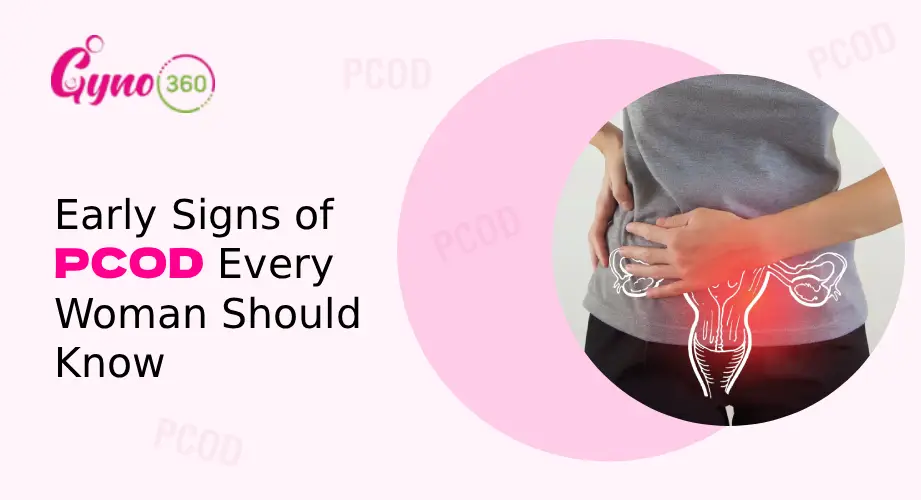Polycystic Ovarian Disease (PCOD) is a common health condition that affects many women in India. In this condition, the ovaries produce more androgens, which are male hormones than usual. This affects the menstrual cycle, skin, weight, and even fertility. Lifestyle changes, stress, and unhealthy eating habits are making PCOD more common among young women. The good news is that if you identify the problem early, you can manage it better with medical help and lifestyle changes.
Let’s look at the early signs of PCOD that every woman should watch out for.
Irregular Periods
The most common sign of PCOD is irregular periods. A normal cycle is between 28–35 days, but women with PCOD may skip their periods or get them late. Some may also face very heavy or very light bleeding. If your period pattern is constantly unpredictable, it is time to see a doctor.
Excess Hair Growth
PCOD increases the level of male hormones in the body, leading to excess hair growth. Women may notice thick and dark hair on the face, chin, chest, stomach, or back. This condition is called hirsutism and is an important sign of hormonal imbalance.
Acne and Oily Skin
Many women with PCOD suffer from acne that does not go away easily. The skin becomes oily, and pimples may appear on the face, chest, or back. If you are struggling with stubborn acne along with irregular periods, it may be due to PCOD.
Fertility Issues
PCOD often leads to irregular ovulation, which makes it harder for women to conceive. Difficulty in getting pregnant is one of the major signs of this condition. However, with proper medical guidance and lifestyle management, many women with PCOD are able to have healthy pregnancies.
Sudden Weight Gain
Unexplained weight gain, especially around the stomach area, is another sign of PCOD. Even with a healthy diet and regular exercise, women may find it very hard to lose weight. This happens because PCOD often leads to insulin resistance, which makes the body store more fat.
Hair Thinning or Hair Loss
While some women experience excess hair growth, others may see thinning of hair on the scalp. This condition is similar to male-pattern baldness, where hair becomes thin on the crown area. PCOD-related hair loss can be emotionally stressful and needs timely care.
Mood Swings and Fatigue
Hormonal changes due to PCOD affect not only the body but also the mind. Women may feel tired all the time, face mood swings, or even have symptoms of anxiety and depression. If you constantly feel low on energy despite resting well, it can be linked to PCOD.
Dark Patches on Skin
Some women notice dark patches around the neck, underarms, or groin area. This condition, called acanthosis nigricans, is linked with insulin resistance, which is common in PCOD. Such skin changes should not be ignored.
When to See a Doctor?
If you notice more than one of these symptoms, such as irregular periods, acne, hair loss, or sudden weight gain, it is important to see a gynaecologist. Doctors may suggest lifestyle changes like eating a balanced diet, regular exercise, stress management, and in some cases, medication to balance hormones.
PCOD is becoming a common health issue among women worldwide. Symptoms like irregular periods, acne, excess hair growth, and sudden weight gain should never be ignored. Though, PCOD can be controlled, allowing women to lead a healthy and happy life.



